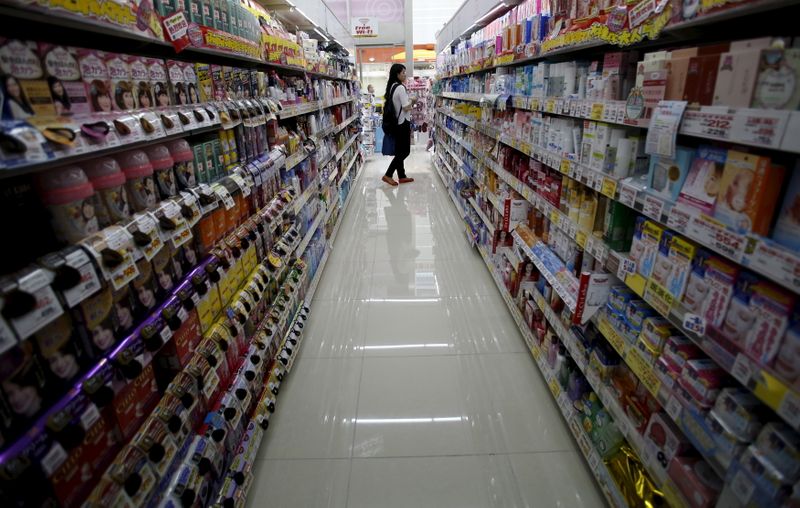By Leika Kihara
TOKYO (Reuters) -Japanese wholesale prices marked their first annual increase in more than a year in March, a sign that rising commodities costs are pinching corporate margins and adding inflationary pressure to the world's third-largest economy.
Japan's corporate goods price index (CGPI), which measures the price firms charge each other for their goods and services, rose 1.0% in March from a year earlier, Bank of Japan (BOJ) data showed on Monday, marking the first rise in 13 months.
Markets are turning their attention to the return of inflation as advanced economies recover from the impact of the COVID-19 pandemic last year, forcing some central banks to offer reassurances that a brief uptick in prices won't trigger a withdrawal of stimulus.
Analysts, however, expect the fallout on consumer inflation to remain more modest in Japan than in the United States, as soft wage growth and slow vaccines rollouts are seen weighing on Japan's household spending.
The March jump in wholesale prices, which was at the fastest pace since January 2020, exceeded a median market forecast for a 0.5% increase and followed a 0.6% fall in February.
"While there's still a lot of uncertainty on the outlook, global economic activity is picking up and keeping commodities prices high," said Kouta Fujiwara, an economist at NLI Research Institute.
"Given the base effect of last year's sharp fall, Japan's wholesale inflation may spike to around 3% from April," he said.
Most of the gain in March wholesale prices was driven by a 29% spike in prices of non-ferrous metals goods and 9.8% rise in those for oil products and coal, showing how a rebound in global demand for commodities pushed up costs for Japanese firms.
Compared with a month ago, wholesale prices jumped 0.8% in March to mark the biggest gain since October 2019.
"The increase is driven mostly by recoveries in U.S. and Chinese economies, which are pushing up global commodities prices, rather than a rebound in domestic demand," said Shigeru Shimizu, the head of a BOJ division overseeing price moves.
"It's too early to say price levels have fully returned to pre-pandemic levels," he told a briefing.
The data will be among factors the BOJ will scrutinise when it conducts a quarterly review of its growth and price forecasts at its next interest rate review on April 26-27.
Japan's economy has emerged from the initial hit of the pandemic thanks to robust exports. But analysts expect any recovery to remain modest with a renewed spike in infections clouding the outlook for domestic demand.

Years of heavy money printing by the BOJ has failed to push inflation up closer to its 2% target, with core consumer prices falling 0.4% in February from a year earlier.
While rising input costs could help push up consumer inflation, they could also hurt retailers already feeling the pinch from slumping sales blamed on the pandemic.